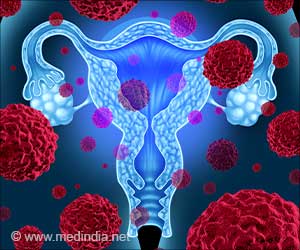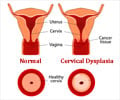Recognize irregular periods as potential indicator of cervical cancer. Early detection saves lives.
- Don’t dismiss irregular periods as mere hormonal fluctuations; they could signal underlying health issues, including cervical cancer risks
- Unusual discharge, abnormal bleeding, and pelvic discomfort during intercourse are key symptoms that warrant medical attention and may indicate cervical cancer
- By prioritizing routine screenings and seeking timely medical advice for irregular periods, women can take proactive steps in early detection and prevention of cervical cancer, ultimately safeguarding their reproductive health
Prevalence and Sociodemographic Covariates of Cervical Cancer and Its Association With Menstrual Irregularities: Findings From the 2017 National Inpatient Sample Database
Go to source). Cervical cancer remains a significant global health concern, with Human Papillomavirus (HPV) infections playing a central role in its development. The initiatives on spreading awareness of HPV infection have shed light on the preventable nature of this threat, emphasizing the need for education, advocacy, and action to combat HPV-related diseases. Among these diseases, cervical cancer stands out as a prime target for early detection and prevention efforts.
Recognizing Symptoms: A Vital Step in Early Detection
Early detection is paramount in the successful treatment of cervical cancer. Dr. Mehta highlights the importance of recognizing symptoms that may indicate cervical cancer, urging women to be attentive to their bodies. Among these symptoms are:- Unusual discharge, potentially with a foul smell or containing blood.
- Abnormal vaginal bleeding, especially between periods or after menopause.
- Pelvic pain and discomfort during intercourse.
Studies highlight the importance of routine screenings and medical attention for women experiencing irregular periods. Early detection through vigilant monitoring of menstrual cycles can significantly reduce the risk of developing cervical cancer. Dr. Mehta stresses the need for women to prioritize their well-being by seeking medical advice if their menstrual cycle deviates from the norm.
Taking Charge: Empowering Women’s Health Through Awareness and Action
In conclusion, irregular periods should not be dismissed lightly. Instead, they should serve as an alert for women to listen to their bodies and seek timely medical intervention. By addressing irregularities in menstrual patterns, individuals can take proactive steps to safeguard their reproductive health and mitigate the risk of cervical cancer. Ultimately, early detection and treatment are pivotal in combating cervical cancer caused by HPV. Ignoring irregular periods could mean missing a crucial opportunity for intervention before it’s too late.Reference:
- Prevalence and Sociodemographic Covariates of Cervical Cancer and Its Association With Menstrual Irregularities: Findings From the 2017 National Inpatient Sample Database - (https://www.ncbi.nlm.nih.gov/pmc/articles/PMC8596495/)
Source-Medindia
















